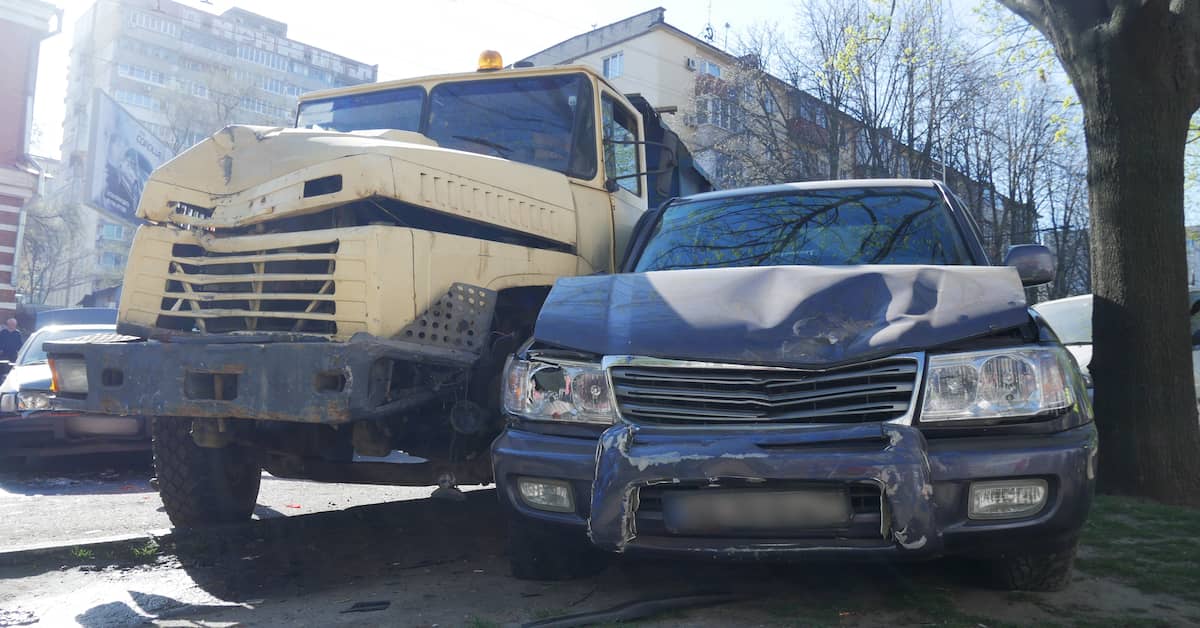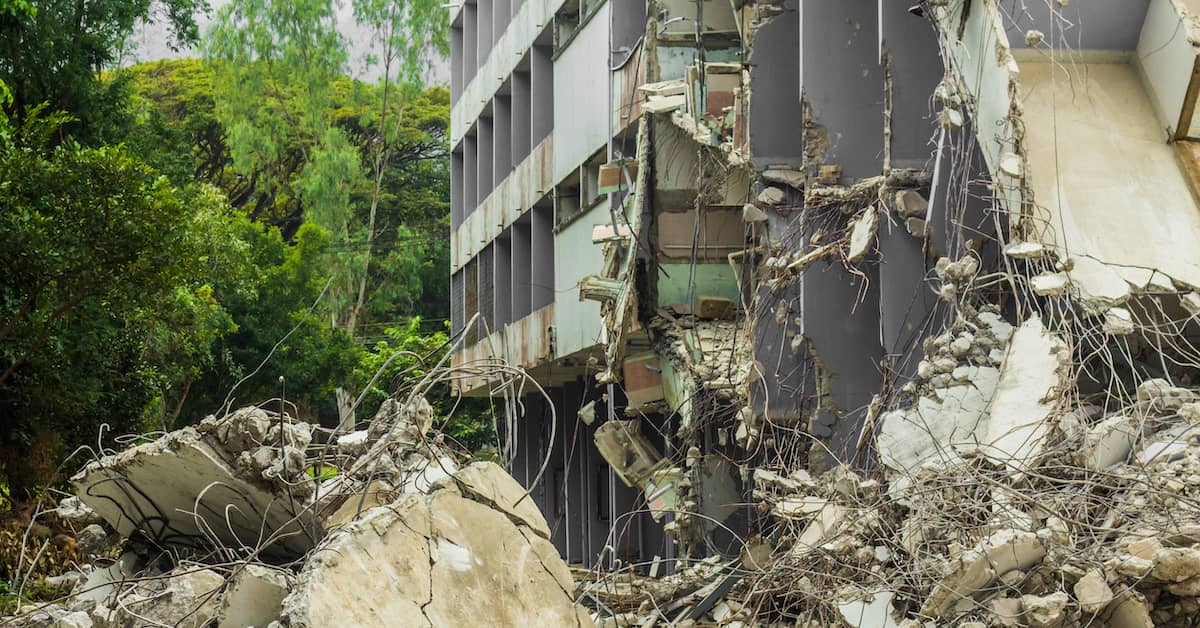
Truck Accidents vs Car Accidents: What’s the Difference?
There are many differences when it comes to truck accidents vs car accidents. When you or a loved one are injured, they might not seem to matter. Motor vehicle accidents can be overwhelming even when minor. However, the devastation of a multi-vehicle or large truck accident can be catastrophic.
While both truck and car accidents can result in severe injuries and property damage, there are significant differences between them in terms of their causes, consequences, and the legal processes surrounding them. Understanding the differences between truck and car accidents may be helpful should you be involved in one. Delving into the distinction could aid you in handling the aftermath and your pursuit of compensation.
If you’ve been injured in an auto accident, reach out to Maggiano, DiGirolamo & Lizzi. Our New Jersey truck and car accident lawyers have experience and knowledge of the differences in truck accidents vs car accidents. Call (201) 585-9111 for a FREE consultation today.
Differences in Truck Accidents vs Car Accidents
Physical Size
The most apparent difference when considering truck accidents vs car accidents is the sheer size difference of the vehicles involved. The average motor vehicle weighs approximately 3,000 pounds. Meanwhile, a fully-loaded commercial truck, such as an 18-wheeler or semi-truck, can easily weigh more than 80,000 pounds.
With the significant size and weight difference, commercial truck accidents produce more serious injuries and property damage than other types of car accidents. The occupants of passenger vehicles are simply outmatched by the magnitude of the commercial truck.
Severity of Injuries
As stated above, accidents involving commercial trucks often result in more severe injuries than car accidents. Though large trucks don’t cause as many accidents as other types of vehicles, truck accidents are deadlier, resulting in a higher number of serious injuries and fatalities.
Due to the hulking nature of 18-wheelers, occupants of smaller vehicles may suffer from catastrophic injuries such as:
- Traumatic brain injury
- Spinal cord damage
- Internal injuries
- Burns
- Loss of limb
- Disfigurement
- Even loss of life
This difference amplifies the necessity for immediate medical attention following a truck accident. It also makes the pursuit of justice and compensation for a victim’s devastating injuries that much more critical when another’s negligence causes their damages.
Read More: What Are the Most Common Injuries in Truck Accidents?
Multiple-Vehicle Collisions
Most car accidents involve a collision between two passenger vehicles. However, when it comes to large truck accidents, the vehicle’s dimensions, weight, and velocity increase the probability of a multi-vehicle collision.
An 18-wheeler or semi-truck will not likely stop after colliding with one small passenger car. Even if the truck driver were to take prompt action, there would likely be additional collisions as it would be difficult for the massive vehicle to come to a stop.
Regulations
Another significant difference between truck accidents and car accidents is what rules and regulations are involved. In a typical car accident, attorneys and insurance adjusters will try to piece together the moments leading up to the crash and determine the proximate cause. Once the cause is determined, they will compare the driver’s conduct to the New Jersey Rules of the Road to see if they acted negligently.
In the case of a truck accident, the rules go beyond the Rules of the Road. The size, weight, and cargo load of a commercial truck makes them more difficult to operate and puts other vehicles on the road at risk. Because of this, commercial truck operators are held to higher legal standards.
Trucks are subject to far more regulations than standard passenger vehicles. The Federal Motor Carrier Safety Administration (FMCSA) sets rules that trucking companies and truck drivers must follow, including restrictions on hours of service to prevent driver fatigue, requirements for regular vehicle inspections, rules for securing cargo, and more. If a trucking company or driver fails to adhere to these regulations, they can be held liable for any resulting accidents.
Liability
Determining ownership and liability can be significantly more complicated in a truck accident case. In a typical car accident, you exchange information with the other drivers, who are usually also the owners of the vehicles involved. In some instances, a vehicle owner can be held liable for damage caused by someone borrowing their car, but this is rarer than filing a lawsuit against the other driver themself.
When it comes to trucking accidents, the driver is not typically the truck’s owner. In fact, a truck accident can involve multiple parties. Depending on the circumstances of the accident, a number of parties could shoulder liability. These parties include:
- The truck driver, who could be one of a company of drivers or owners/operators contracted by a trucking company for a certain amount of time (or hired through a third-party contractor)
- The employer, who could own the tractor-trailer or be leasing it through a third party
- The truck owner, who could own just the trailer, just the tractor, or both
- The cargo crew, which includes shippers, loaders, brokers, and more, could be liable if the cargo was loaded improperly or weighed incorrectly
- Safety companies, such as third-party maintenance crews, repairmen, safety compliance officers, or insurance companies
Sometimes, the trucking company and driver have an employment contract that dictates the company is legally responsible for any accidents caused. In other cases, the driver is an independent contractor who is supervised in some capacity by the trucking company. Different types of relationships between the driver and the trucking company give rise to different levels of liability for the accident.
Accident Causes
While driver error can lead to both car and truck accidents, the specifics can differ markedly. Truck accidents are often caused by driver fatigue (due to long hours on the road), improper cargo loading, and lack of adequate driver training. In contrast, car accidents are more frequently linked to distracted driving, speeding, and impaired driving.
Insurance Considerations
Commercial trucks typically carry much higher insurance policies than passenger vehicles due to the potential for severe damage and injury. This factor can complicate the legal process following a truck accident, as the high stakes often motivate insurance companies to fight harder against claims.
Legal Representation
Given the complexity of truck accidents, victims often need attorneys with specific experience in this area. These truck accident lawyers understand the regulations governing the trucking industry, can identify all potential defendants, and are experienced in dealing with large trucking insurance policies.
Meet Our Attorneys
Why Consult an Attorney After a Truck or Car Accident?
Engaging a lawyer after a car or truck accident can provide essential support and guidance. An attorney will be crucial in securing rightful compensation for any injuries incurred.
Personal injury law can be complex, and an experienced attorney can help navigate the intricate legal system. They will understand how to handle the specific requirements and deadlines associated with filing your claim. They can also gather the evidence needed to build a strong case. This could involve accident scene investigations, witness statements, medical records, and expert testimonies.
An attorney is able to calculate the actual value of your claim. They’ll factor in medical costs, loss of earnings, pain and suffering, and more. Then, they will use their practiced negotiation skills to deal with insurance companies, who often propose lower settlements to protect their interests.
If your case proceeds to trial, you’ll want a seasoned advocate in your corner. A lawyer with the appropriate experience can represent you effectively, presenting your case in the most compelling way possible. A truck or car accident lawyer will play a vital role in maximizing your recovery, reducing stress, and ensuring justice is served.
How Can the Lawyers at Maggiano, DiGirolamo & Lizzi Help?
While both car and truck accidents can have severe consequences, truck accidents tend to involve more serious injuries, complex regulatory issues, and complicated legal proceedings. After an accident, it is crucial to seek medical attention for your injuries. However, once you are safe, you will need the assistance of a knowledgeable lawyer to pursue the compensation you deserve for your losses.
When considering truck accidents vs car accidents, the most important takeaway is to make sure your attorney is skilled in the type of accident you’ve been injured in. The lawyers at Maggiano, DiGirolamo & Lizzi have extensive experience with both truck and car accident claims. Contact us today for a FREE consultation. We serve clients in both New Jersey and New York.

















